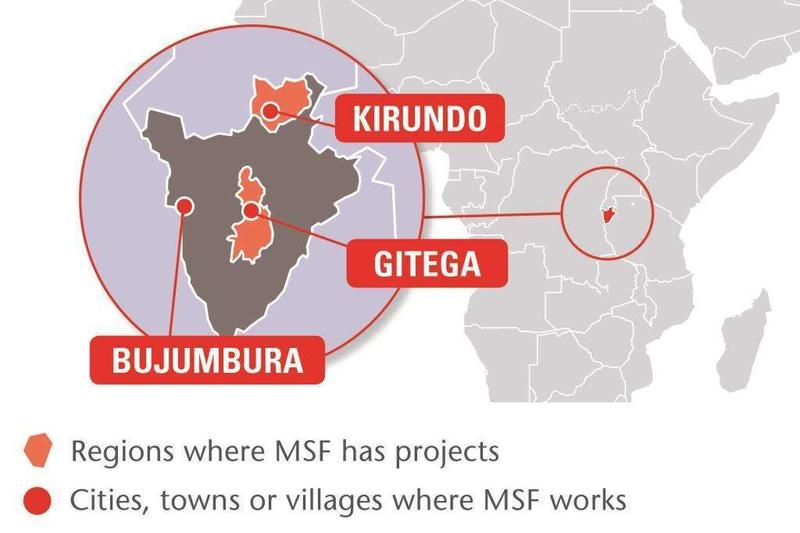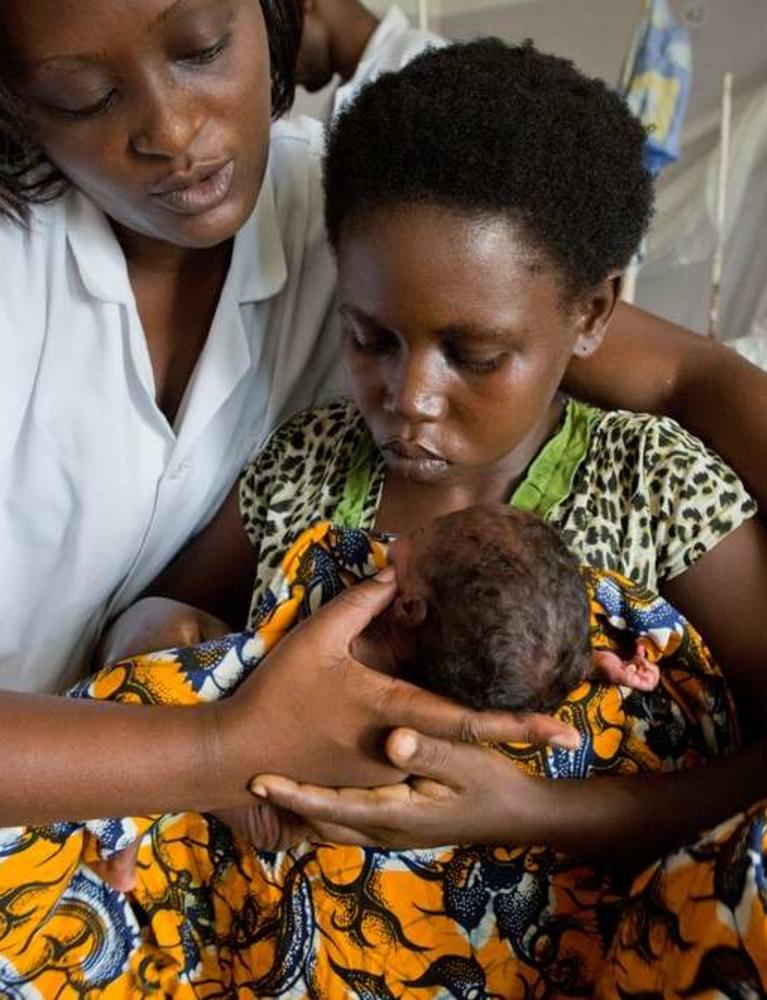The landlocked East African country of Burundi is one of the world’s poorest nations.

Since independence from Belgium in 1962, Burundi’s 10.5 million people have been plagued by civil war. Tensions still exist between the usually-dominant Tutsi minority and the Hutu majority.
Due to current unrest in the country, thousands of Burundians have fled across the border to Tanzania. Médecins Sans Frontières/Doctors Without Borders (MSF) is helping tens of thousands of these refugees in the Nyarugusu and Nduta camps.
MSF first worked in Burundi in 1992. Our work in the country has focused on providing responses to endemic and epidemic diseases, social violence and healthcare exclusion.
MSF’s work in Burundi: 2015
Médecins Sans Frontières (MSF) started working in Bujumbura, the capital of Burundi, in April 2015 when violence increased in the run-up to the elections.
Between May and July, MSF supported health posts near where demonstrations took place, enabling 120 patients to access free care in public facilities. MSF also trained the medical staff at Prince Rwagasore hospital in Bujumbura in the treatment of trauma victims, and donated medicines and medical supplies.
MSF has been running a 43-bed trauma centre in Arche hospital in Kigobe, in the north of the city, since July 2015. The centre has an emergency room, two operating theatres and an intensive care unit. Teams provide free medical care to victims of violence, and by the end of the year, had treated 693 patients, 417 of whom required hospitalisation.
Handing over the malaria project in Kirundo
In January 2015, the handover of the Kirundo malaria project to the Ministry of Health was finalised with the transfer of the Mukenke district programme.[[Article-CTA]]
The project had focused on reducing severe malaria-related mortality, and as the use of injectable artesunate is now integrated into the country’s malaria treatment policy, MSF’s presence is no longer required.
Obstetric fistula in Gitega
Five years after its launch, management of the Urumuri obstetric fistula centre was officially handed over to Gitega regional hospital in August 2015.
"The MSF team welcomed me to the women's village. I feel good here; we dance together often. All the women here suffer from the same thing, and that helps us cope. I’m having the surgery in a week. I hope it will go well; I’m confident it will."
Fistula is a frequent consequence of birth complications in Burundi, and causes not only pain but also urinary and even faecal incontinence. This in turn often leads to social exclusion and sometimes rejection by friends and family.
Since 2010, MSF has treated nearly 1,800 women for fistula at the Urumuri centre and the majority have made a full recovery.
Find out more in our 2015 International Activity Report




